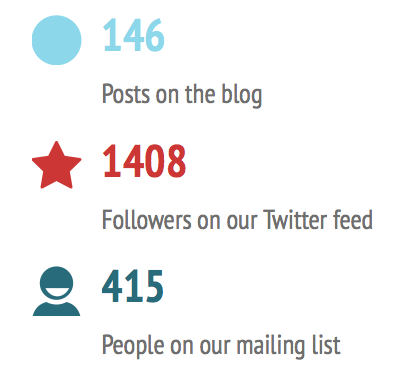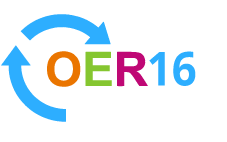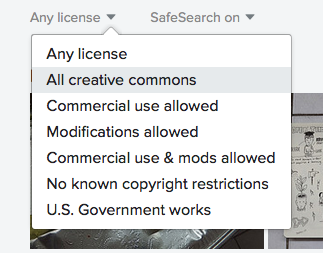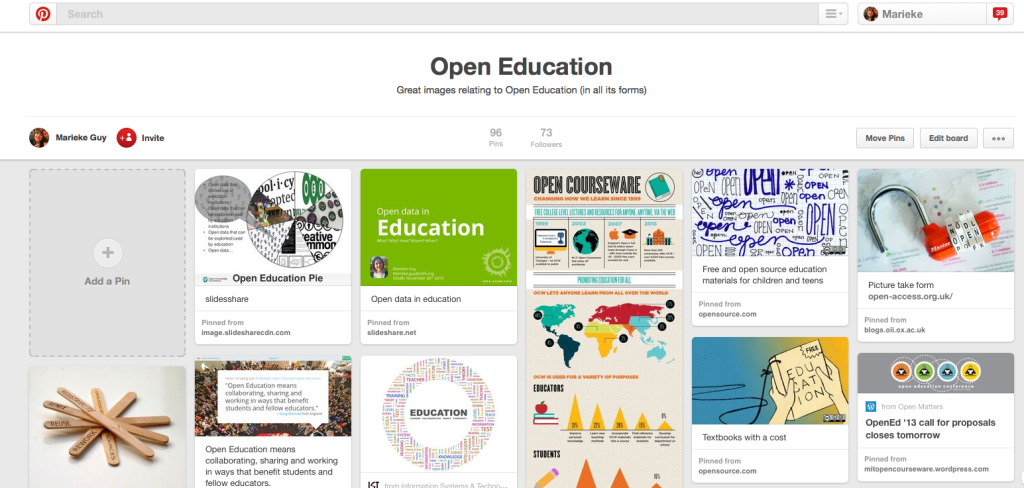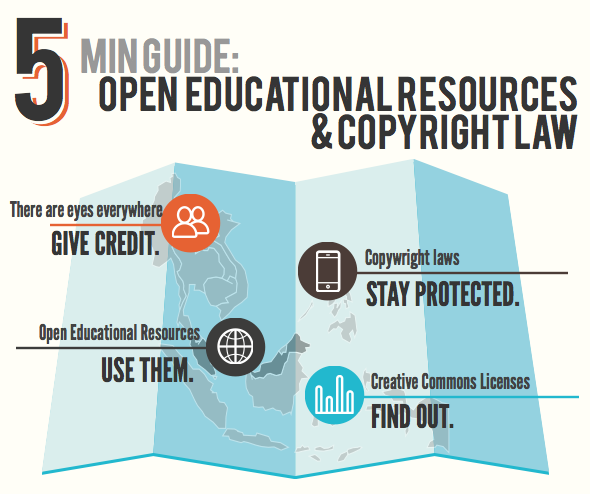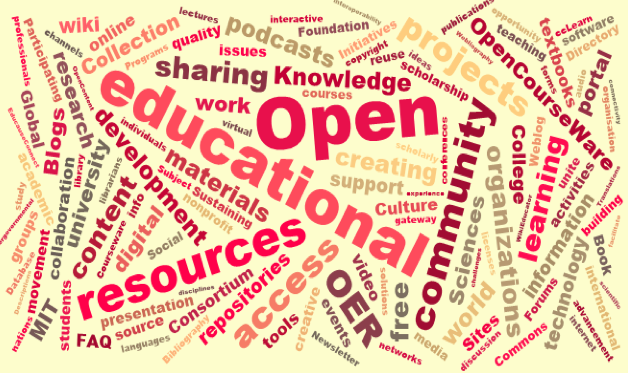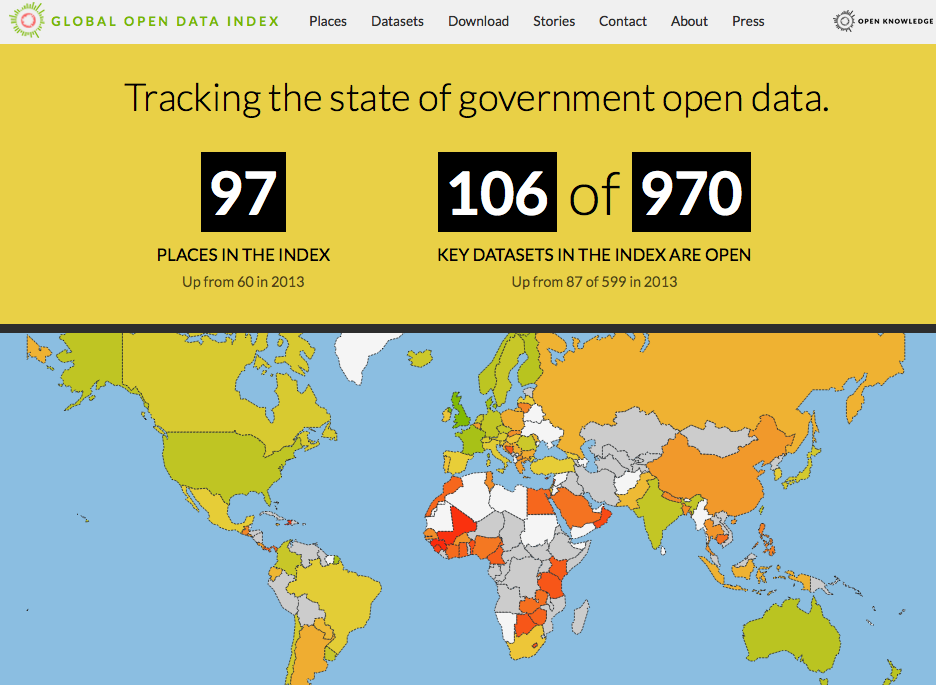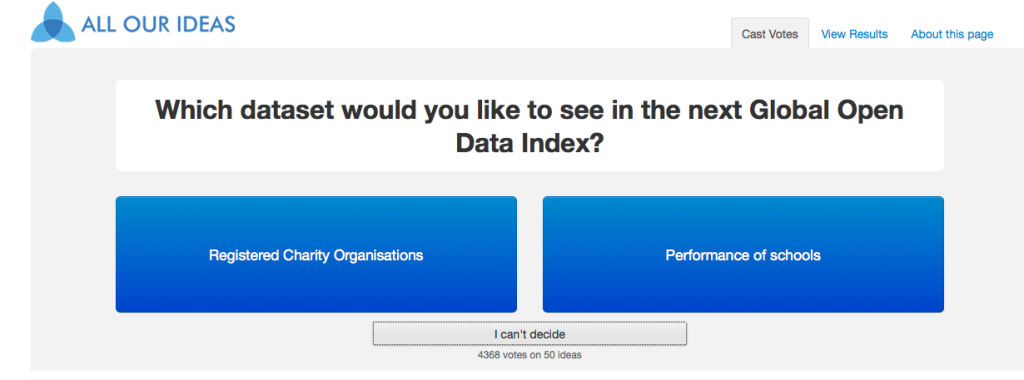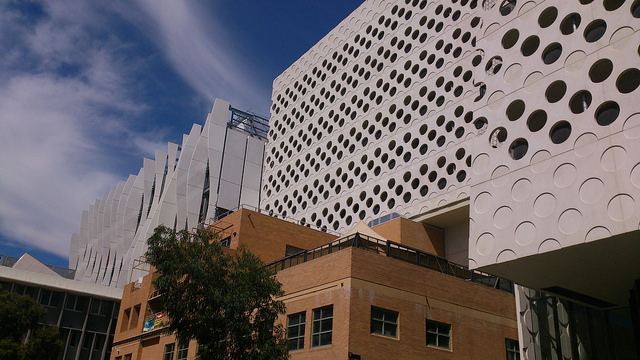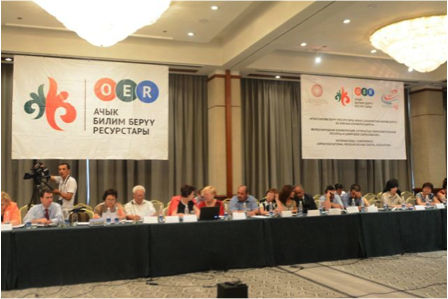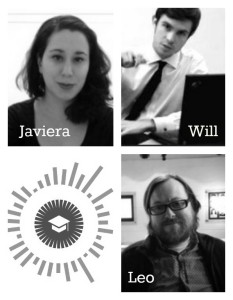 Open Educational Practices are teaching techniques that draw upon open technologies and open educational resources in order to facilitate collaborative and flexible learning. There are many ideas in this space including thoughts around collaborative working, fusing post-web pedagogy, andragogy (adult learning) and heutagogy (self-determined learning).
Open Educational Practices are teaching techniques that draw upon open technologies and open educational resources in order to facilitate collaborative and flexible learning. There are many ideas in this space including thoughts around collaborative working, fusing post-web pedagogy, andragogy (adult learning) and heutagogy (self-determined learning).
Work related to OEP is an increasingly significant part of the Open Education landscape.
Dr Sofia Papadimitriou from the Ministry of Culture, Education & RA, Greece has written for us about her experience of supporting the Tutor-Counselor’s work in the Hellenic Open University using OEP.
***
Advanced learning technologies have changed distance learning and transforms radically 21st century education. Both traditional and Open Universities approach more and more distance education, since learning is possible to happen in areas outside the traditional campus, occurring anytime and anywhere.
The teacher is the key factor for improving the quality and efficiency of education. A fairly large percentage of scientists who consists the academic staff of Open Universities derived from conventional education. They have extensive expertise in their scientific field, however they lack experience and knowledge on methodological issues of distance education. Focusing on the Open Higher Education, the role of the tutor-counselor has a significant impact in completing the studies of adult students. The loss of student motivation due to the lack of interpersonal contact with their tutor-counselor and also with peers is an obstacle to successful distance education and a possible loss of the second educational opportunity which Open Universities provides to their students.
Survey at the Hellenic Open University
In this context, a survey was conducted in the Hellenic Open University from 2009 to 2013 aiming to explore methods which have the potential to support tutor-counselor in Open and distance Higher Education and also approached the components of a supporting mechanism for them. The research phases include four case studies and an action research on the course Geography, Human Geography and the Material Culture in Europe, focusing on authentic problems faced by tutor-counselor and explore the process of constructing new knowledge. The supporting mechanism entitled Guide for Effective Teaching was developed and evaluated in the framework of the research aiming to:
- Enrich and update the existing teaching material using Open Educational Resources (OER).
- Design and implement Open Educational Practices (OEP) based on OER to promote both collaborative and adaptive personalized learning.
- Engage tutor-counselor in Professional Learning Networks on their particular cognitive field.
The Guide for Effective Teaching (GET) available at the URL http://support4tutors.blogspot.gr/ was developed using the methodology of distance education and the principles of adult education, aiming to implement OEP of active and inquiry based learning and creating by that, effective learning environments. The GET includes OEP based on the template of the Phoebe Pedagogical Planner by JISC UK. They are described by a detailed set of metadata as learning goals, objectives, OER used, activities, the role of tutor etc. In addition, the learning objectives for each activity are based on the four pillars of education by Unesco (1996). The proposed OEP combine tutor-counselor’s rich expertise gained so far and also the achievements of learning technologies.
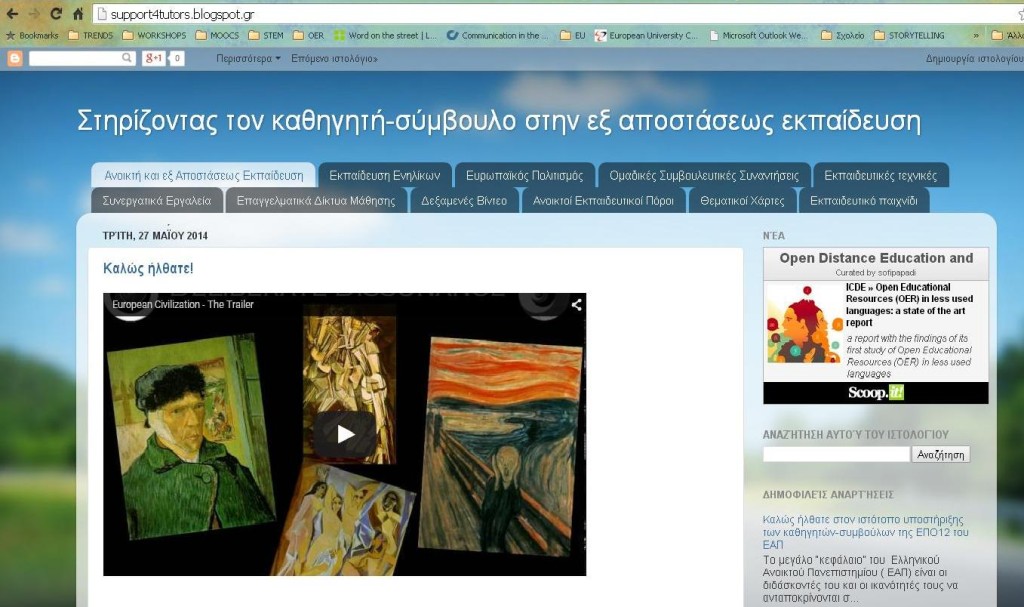
Open Educational Practices for Effective Teaching
The GET includes a series of OEP based on a rich variety of OER aiming to support tutor-counselors in the framework of:
- implementing face-to-face meeting combining OER with diverse active and collaborative methodologies,
- guiding students to implement assignments,
- enhancing interactions in online Communities of Practice approaching by that socio-constructive theories of learning.
The study highlights the use of OER as social objects with active learning techniques as brainstorming, debates, role playing, group working in both collaborative online or face-to-face setting. Each tutor-counselor is able to use, reuse, remix, repurpose the OEP and also share them, extending and enriching the repository.
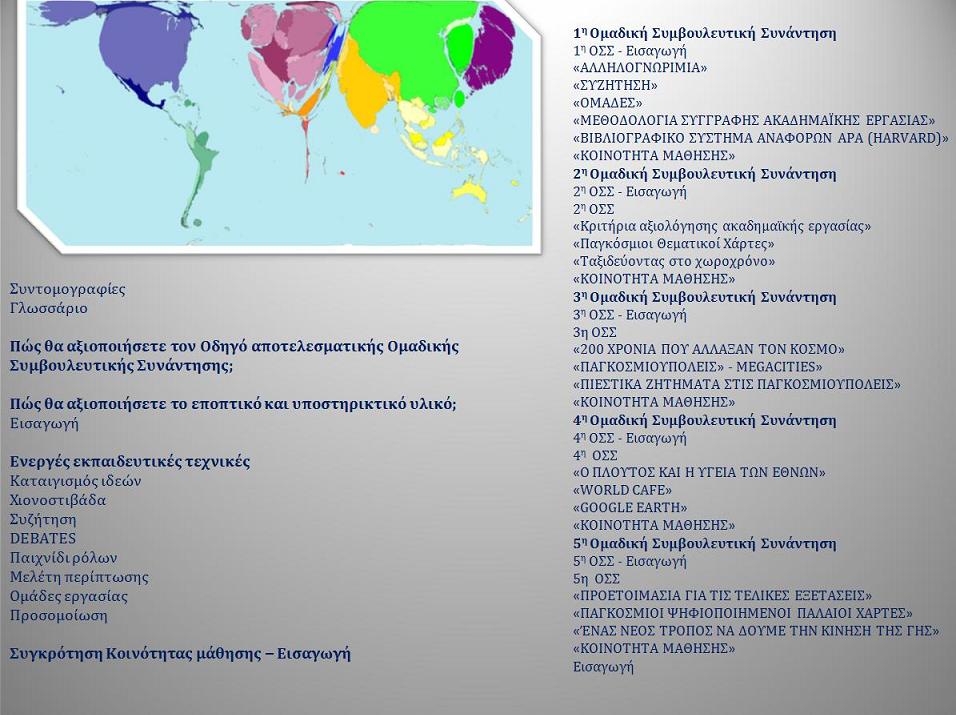
Guide for Effective Teaching
OEP are based on the pedagogical framework of experiential and active learning. The fundamental principle of experiential learning is that learners discover knowledge and develop skills via interactive learning environments, experimentation and practice. Students build practical, virtual and real symbolic representations through relevant OER in order to understand information and achieve cognitive development.
A concrete set of single learner, self-paced OEP was proposed to support tutor-counselor’s work in achieving personalized learning for students who prefer an individual approach according their own pace. The Online Learning Management System LAMS was used to develop indicative OEP aiming to guide and monitor the development of assignments or essays and having the potential to provide extensive data for statistical analysis (learning analytics) towards personalized learning. OEP based on LAMS provide personalized, interactive, just-in-time, current and user-centered services. During their implementation they can be adapted in students learning needs and tutors choices so as to be more effective. Based on the analysis conclusions, methods of effective personalized learning can be redefined and redesigned.
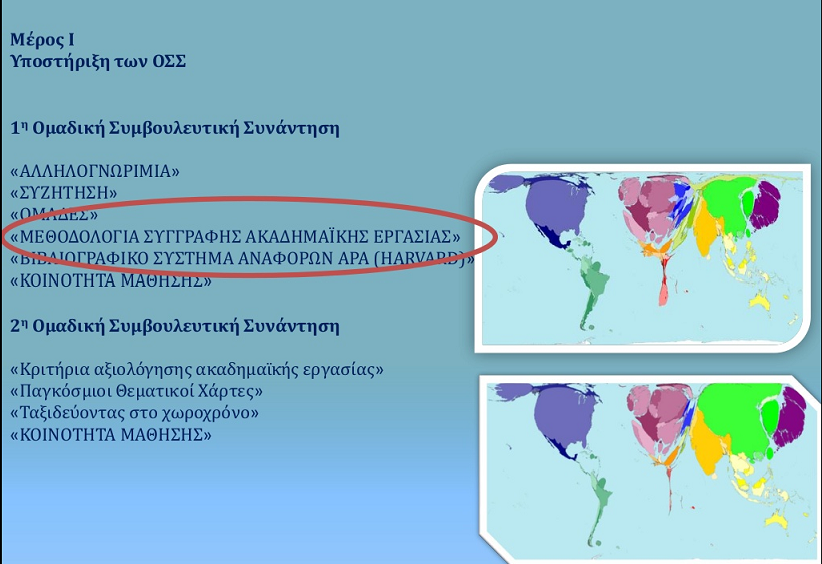
Open Educational Practices for face-to-face meetings
Learning in the 21st Century
The proposed series of OEP affect critically to tutors’ effective role in social and educational context. Developing OEP based on OER provide to tutor-counselor, a repository of good practices, which they are able to expand, adapt, reuse, repurpose and remix with their everyday work approaching by that pedagogical innovation and creativity. In parallel, emphasis is given in the social context which influences each cognitive process. All three generations of pedagogy, behaviorism, constructivism and connectivism are necessary to cover the whole spectrum of educational needs of students in the 21st century. Combining pedagogies is crucial for the development of flexible content-based OEP.
Enhancing tutor-counselor’s work with OER and OEP has a crucial impact and improvement to students engagement and performance, as well. They study in an effective collaborative environment, rich with new media, using a wealth of trusted and reliable resources. When students get involved actively in the learning process, high percentages of students’ drop-out from Open Universities could be reduced, too.
Author details – Sofia Papadimitriou
Sofia Papadimitriou has studied Mathematics and Computer Science (M.Sc) in the Athens National University. Her PhD entitled “The role of tutor-counsellor and the development of his supporting mechanism in a collaborative learning environment in distance education” regards in the field of Open and Distance Learning in Higher Education and has been developed in the School of Humanities at the Hellenic Open University. She has been an ICT Secondary teacher since 1990 and also an educator in ICT training courses for primary and secondary teachers. She has been working in the Educational RadioTelevision (Ministry of Education), since September 2007 coordinating its Social and Digital Media. Furthermore, she has coordinated 5 working groups on behalf of the Educational RadioTelevision for the European projects: EduTubePlus, MEDEAnet, March (MAke science Real in sCHools). Sofia has also participated in the Energy-bits, a cross media European project distributed in Television and the Web and also at the development of the Photodentro/Educational Video, an Open Educational Resources/Video Repository for school education, designed and developed by CTI Diophantus in the framework of the reform “Digital School”. Sofia has co-authored 4 book chapters and published 31 papers in scientific conferences and journals on the topics of Open and Distance Learning, using Media in Education, Open Educational Resources and Practices, Academic staff development and STEM (papers and presentations are available at the URLs: http://eap.academia.edu/SofiaPapadimitriou, http://www.slideshare.net/sofipapadi).
 Open Education Working Group
Open Education Working Group 